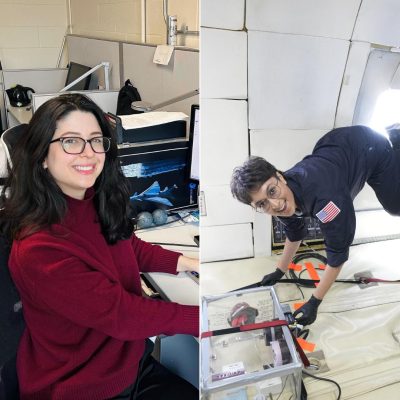
Working from 0 to 1 instead of from n to n+1
Considering an academic career
After pondering for a long time whether I should choose an academic career, I started to rediscover the motivation that originally led me to become a scientist: asking new questions and helping design fundamental innovations.
What makes me hesitant about academia
Although coming to MIT as a graduate student is helping me realize my dream of being a scientist, I feel more hesitant about my future career this year as a first year graduate student. I gradually am realizing how hard it could be to survive in academia, in such a highly competitive environment. For example, in my field, I’ve heard that many senior graduate students (even with strong publications) couldn’t find suitable positions as faculty members or postdocs. To get an ideal academic job, you need not only good publications but also social skills and the ability to advertise your work. In addition, I don’t know if I am smart enough to be a good professor. There are thousands of examples telling us that scientists are usually super genius and therefore much smarter (and maybe more hard-working) than average people. If I am not enough of a genius, maybe I shouldn’t choose academia as my career.
What motivates me to choose academia again
But recently, I think I’ve heard the voice from my heart motivating me to be a scientist. This voice came to me in an afternoon when I was having a conversation with my advisor. I asked him: “what kind of work can be regarded as a good research work?” He thought for a while, and said: “I think the valuable research work is the work from 0 to 1 instead of from n to n+1”.
This answer deeply impressed me. I suddenly realized that this is exactly what I want from doing research: the chance to make fundamental innovations and explore the fields that even no one has walked in (i.e., from 0 to 1). In my daily life, I have the interest and curiosity to think about strange questions that other people may not even consider. Maybe some of those questions are meaningless, but the fact that I am exploring new questions already makes me excited.
For example, when I was traveling in Lake Baikal in Russia with friends to celebrate college graduation, I observed the phenomenon that trees usually only occur on the edge of the islands. This quickly piqued my interest and we made up a “tree” group to think about the reason behind the phenomenon. We even came up with different conjectures, such as “water conjecture”, “wind conjecture”, and “human activity conjecture”. And when other people were enjoying the beautiful scene of the Lake Baikal, our “tree” group was observing the trees and trying to find evidence to support our own conjecture and disprove others’ conjectures. This sounds a little bit nerdy, but I really enjoyed the process of exploring the phenomenon of trees more than I enjoyed the scene. The motivation to ask something new seems to exist in my genes and in my blood.
Most great scientists and philosophers ask their own questions and provide their own insights. They often did something really new, such as Albert Einstein’s idea about relativity and Claude Shannon’s (the father of information theory) idea about the information entropy. Actually, their research work may not be extremely difficult (after you know their ideas), but those ideas were fundamentally new and opened up new possibilities.
Therefore, motivated by the possibility of exploring new questions and creating new ideas, I want to follow my heart and ask my own science questions as I follow the academic path. I know it is still hard to survive in academia. But this spirit of innovation will motivate me to explore the science and do the research: not only as a career, but also as a lifestyle. To be honest, to increase our number of publications, sometimes we may need to follow other people’s work by making minor changes. But still, I will keep the motivation in mind all the way along my journey as a researcher: to be a scientist, it is more important to keep a mindset of exploration; it is more important to do the work from 0 to 1 instead of from n to n+1.
This story was originally posted on the MIT Grad Admissions blog.

